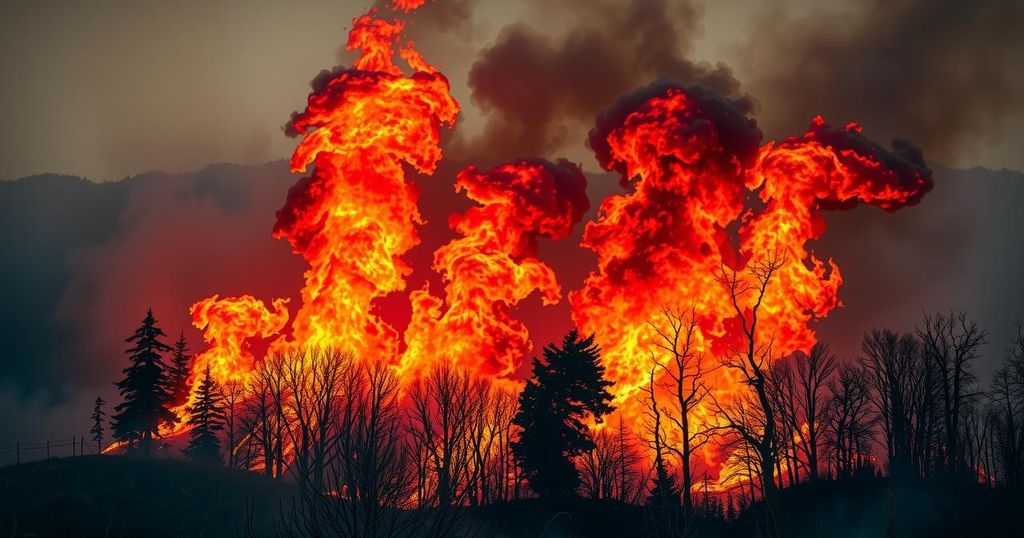Japan Faces Its Largest Wildfire in 50 Years as Firefighters Struggle to Contain Blaze

Japanese firefighters are addressing the largest wildfire in Japan in 50 years near Ofunato, with over 2,600 hectares affected and one reported fatality. Evacuations are underway, and challenging terrain complicates firefighting efforts. Climate change appears to be a contributing factor, with significantly reduced rainfall reported in the region. Future precipitation may aid in controlling the fire.
Japanese firefighters are battling a significant wildfire on the northeastern coast, marking the most severe blaze the country has seen in 50 years. The fire near Ofunato, in Iwate prefecture, has consumed approximately 2,600 hectares (6,425 acres) and continues to spread, threatening urban areas. Evacuations have been mandated for residents as over 2,000 firefighters deploy helicopters and hoses to combat the flames, hampered by challenging mountainous terrain.
A fatality has been reported, and local authorities, including Iwate’s governor, have sought help from neighboring prefectures for assistance in firefighting efforts. Historically, Japan’s humid climate makes wildfires rare; however, climate change may be contributing to increased vulnerabilities due to hotter and drier conditions. Recent weather data indicates reduced precipitation in the area, further exacerbating the fire risk.
The Japan Meteorological Agency reported that Ofunato received only 20 millimeters of rain in January, significantly below the 30-year average. February was even drier, with just 2.5 millimeters of precipitation, prompting a dry weather warning for the region since mid-February. Other areas in Japan have also experienced wildfires recently, though they have since been contained.
Forecasts predict potential snow or rain for the Iwate region, which could assist firefighting efforts, though the specific cause of the wildfire is still under investigation. Increasing instances of wildfires in an island nation known for its humidity raise concerns about the long-term impacts of climate change on Japan’s ecosystem and public safety.
The wildfire in Iwate prefecture highlights the growing threat of climate change in Japan, as traditionally rare fires become more frequent due to uncharacteristically dry and hot conditions. With thousands of firefighters engaged and areas evacuated, the immediate focus is on containment. Increased precipitation may provide much-needed relief, but the underlying causes and longer-term implications of such extreme weather patterns remain troubling.
Original Source: www.business-standard.com







